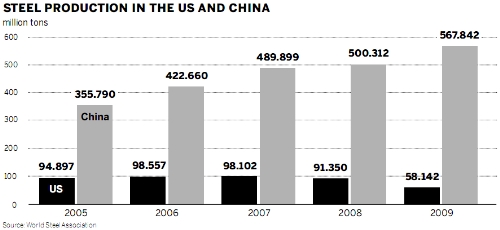-
News >Bizchina
Sino-US partnership holds key to future
2010-08-03 09:55
However, so far "we think the government policies are very supportive of industries in China, whereas government policies in the US are very negative towards industries", he said.It took the West some 200 years to go through the phases of economic growth, he said, but "everything here is compressed" into 20 to 50 years.
"We are working with some of those companies here on new forms of energy. The next generation could be nuclear, some wind, some solar," he said, avoiding the specific names of Chinese companies because they are his clients.
In the West, many treat a rising China as a threat. But Jones said he hopes his book will help more people in the US realize that China and the US, rather than being antagonistic, can cooperate and share global wealth.
"The US cannot go back to making factories to produce millions of phones. That expertise is gone," he said.
But the US has great potential to develop the medical and pharmaceutical industries as well as medical electronic industry, as these are "very software centric", as well as areas like clean energy.
"The US can spend a hundred billion dollars developing very advanced fighter aircraft, strategically it is important," he said.
But "if you spend a significant amount of money developing a car, an automobile that could do 100 miles to a gallon, that could produce a lot of wealth".
Above all, the US must delve into "really leadership technologies" and cooperate "with China in terms of the mass market of today's product. So the US would have some kind of advanced products, with the understanding that China would import those products," he said. "So we would have balance of trade."
"So I think 90 percent of the action needs to be taken by the US, not China, because the US has to get its own house in order first," he said.
But there is still the need to understand an emerging China, Jones said, even though the process can be long and difficult.
The Oriental TV and Jinmao towers that he can see glistening in the distance from his hotel window do not say much about China, its people and its environment."My philosophy is, from the hotel room, you see a facade. You have to be in the street, among the people, to start feeling the environment. What is important about a country is what is inside its people."
For Jones, the journey to "get inside the people in China" is like visiting the Forbidden City. "You go through one gate, you think you are inside, but you are not. You walk through another gate, you think you are inside, but you are not. You walk through another.
"And it takes many, many gates before you get inside China," he said, adding that by going through these many gates, he has learned of the different cultures in coastal areas and the interior, between the north and the south, and between cities and rural areas.

